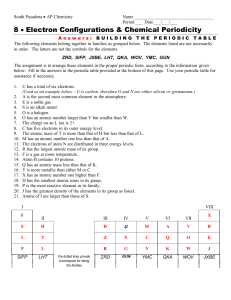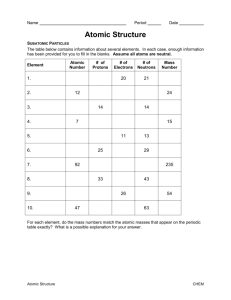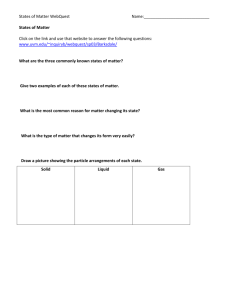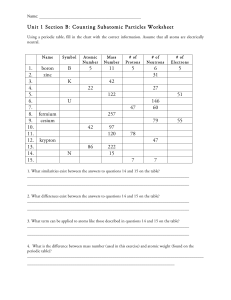8 Electron Configurations & Chemical Periodicity
advertisement
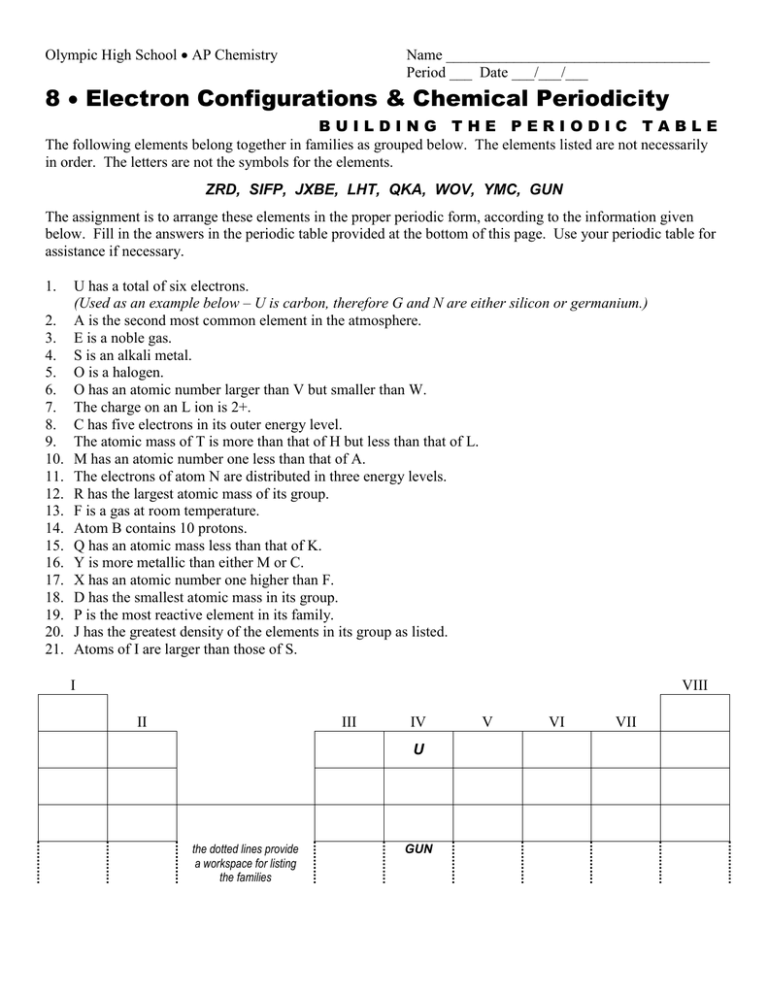
Olympic High School AP Chemistry Name ___________________________________ Period ___ Date ___/___/___ 8 Electron Configurations & Chemical Periodicity BUILDING THE PERIODIC TABLE The following elements belong together in families as grouped below. The elements listed are not necessarily in order. The letters are not the symbols for the elements. ZRD, SIFP, JXBE, LHT, QKA, WOV, YMC, GUN The assignment is to arrange these elements in the proper periodic form, according to the information given below. Fill in the answers in the periodic table provided at the bottom of this page. Use your periodic table for assistance if necessary. 1. 2. 3. 4. 5. 6. 7. 8. 9. 10. 11. 12. 13. 14. 15. 16. 17. 18. 19. 20. 21. U has a total of six electrons. (Used as an example below – U is carbon, therefore G and N are either silicon or germanium.) A is the second most common element in the atmosphere. E is a noble gas. S is an alkali metal. O is a halogen. O has an atomic number larger than V but smaller than W. The charge on an L ion is 2+. C has five electrons in its outer energy level. The atomic mass of T is more than that of H but less than that of L. M has an atomic number one less than that of A. The electrons of atom N are distributed in three energy levels. R has the largest atomic mass of its group. F is a gas at room temperature. Atom B contains 10 protons. Q has an atomic mass less than that of K. Y is more metallic than either M or C. X has an atomic number one higher than F. D has the smallest atomic mass in its group. P is the most reactive element in its family. J has the greatest density of the elements in its group as listed. Atoms of I are larger than those of S. I VIII II III IV U the dotted lines provide a workspace for listing the families GUN V VI VII
